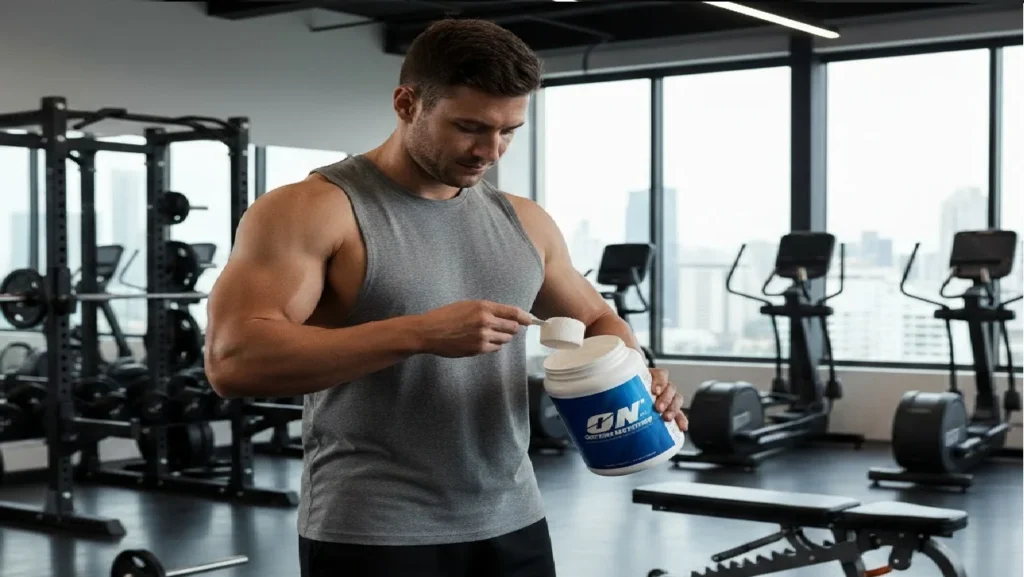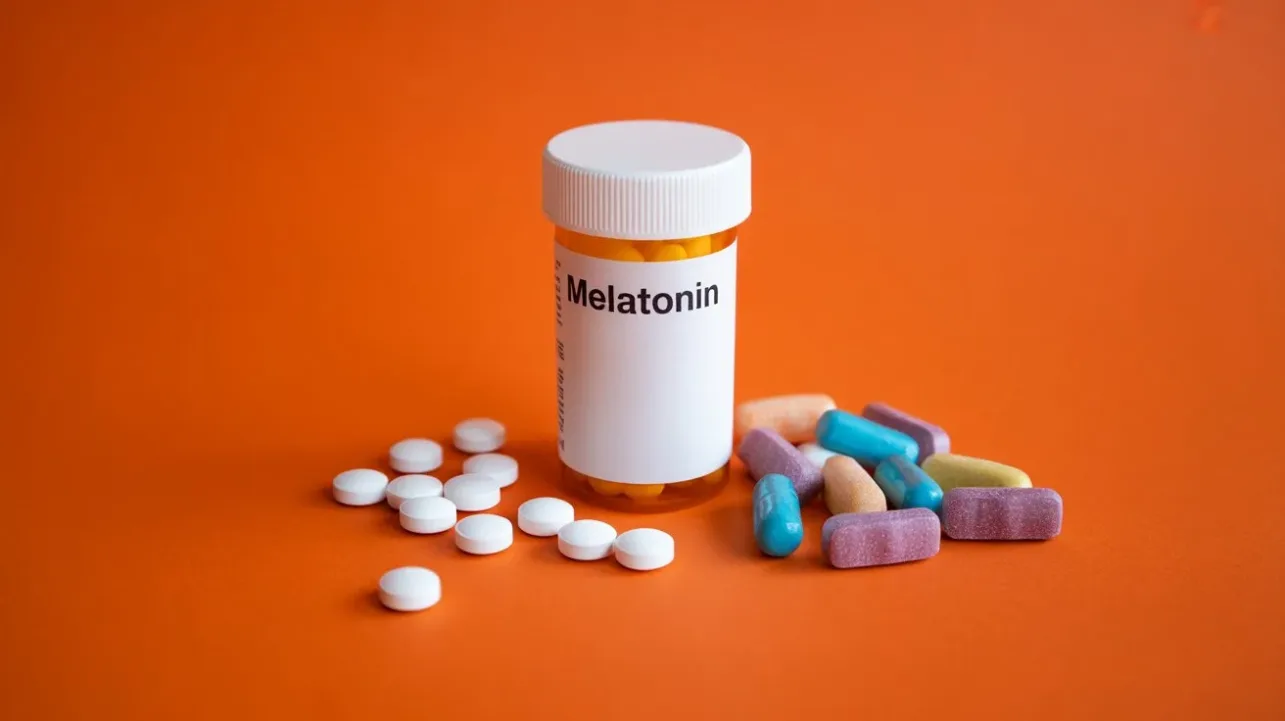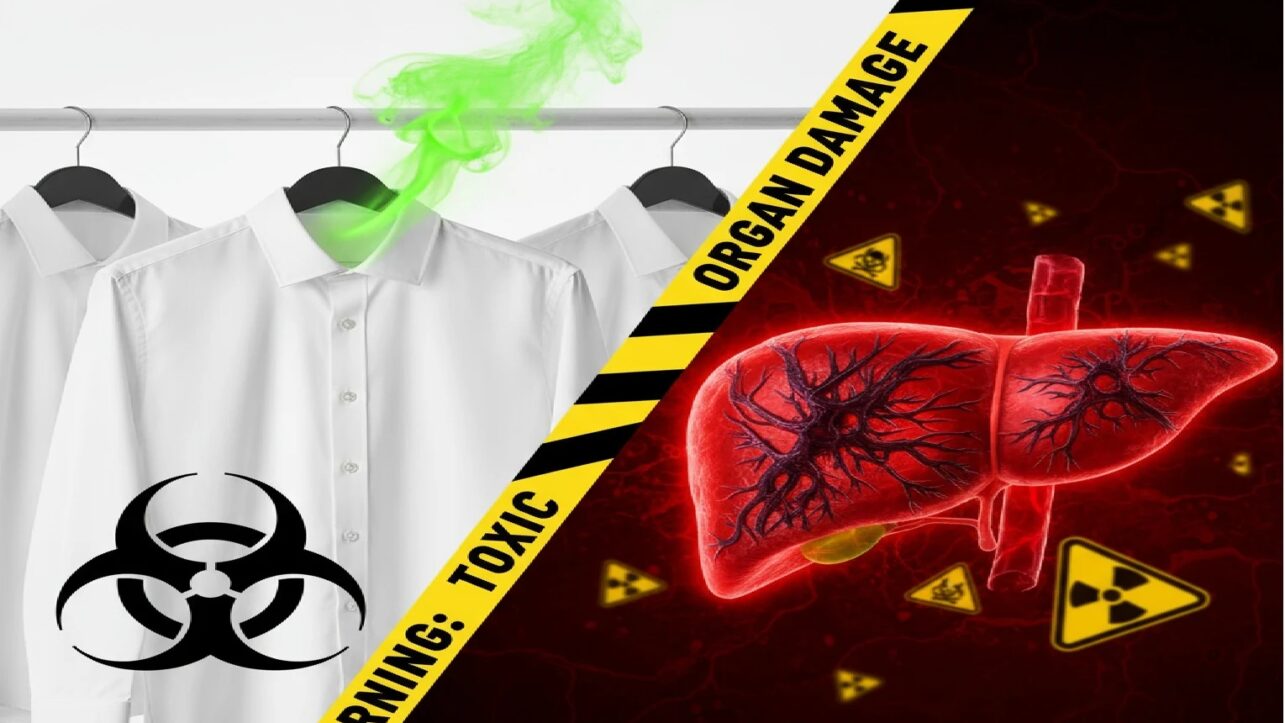If you start your morning with a protein shake, a new investigation may prompt questions about what else you’re consuming. A comprehensive study published October 14, 2025, by Consumer Reports has found heavy metal contamination in popular protein powders and shakes, with 16 out of 23 tested products exceeding California’s strict standards for lead, and several containing concerning levels of arsenic—a carcinogen for which no international safe intake level exists.
The findings have sparked debate within the fitness and nutrition community about appropriate safety standards, cumulative exposure risks, and particularly the alarming presence of arsenic in supplements consumed daily by millions.
Understanding the Safety Standards
Consumer Reports used California’s Proposition 65 standard of 0.5 micrograms per day for lead—one of the most protective standards in the world designed to minimize cancer risk over a lifetime. For arsenic, the U.S. EPA reference dose is 9.8 micrograms per day for a 154-pound adult. Consumer Reports defends its conservative approach because Americans are exposed to heavy metals from multiple sources—drinking water, soil, paint, and various foods—and protein powder adds to this total burden. The investigation found that while lead levels in most products (0.6-7.7 mcg per serving) exceed California’s ultra-strict threshold, they remain far below levels that cause immediate harm; the concern is cumulative exposure over decades. Arsenic contamination presents a more immediate concern in some products where daily serving sizes approach the EPA reference dose, meaning regular users could reach or exceed the primary regulatory guideline from protein powder consumption alone.
The testing methodology assumed one serving per day for a 70-kilogram (154-pound) adult, even where labels recommended multiple servings daily.
Flagged Products
The Products That Exceeded California Lead Standards
Consumer Reports identified products with lead levels exceeding 0.5 micrograms per serving:
Highest Lead Levels:
- Naked Nutrition Vegan Mass Gainer – 7.70 micrograms (1,540% of California standard)
- Huel Black Edition Protein Powder – 6.31 micrograms (1,262% of California standard)
- Garden of Life Sport Organic Plant-Based Protein – 2.76 micrograms (552% of California standard)
- Momentous 100% Plant Protein – 2.33 micrograms (466% of California standard)
- MuscleMeds Carnivor Mass – 1.21 micrograms (242% of California standard)
Moderate Lead Levels (100-200% of California standard):
- Jocko Fuel Mölk Protein Shake – 0.98 mcg
- Vega Premium Sport Protein – 0.91 mcg
- Quest Protein Shake – 0.79 mcg
- Optimum Nutrition Gold Standard Protein Shake – 0.74 mcg
- Equip Prime Protein Shake – 0.71 mcg
- Orgain Organic Protein – 0.70 mcg
- PlantFusion Complete Protein – 0.69 mcg
- Ensure Plant-Based Protein Shake – 0.65 mcg
- Muscle Milk Protein Shake – 0.63 mcg
- Optimum Nutrition Serious Mass – 0.61 mcg
Optimum Nutrition Serious Mass: The Arsenic Crisis
While Optimum Nutrition Serious Mass exceeded California’s lead threshold by 22% (0.61 mcg vs. 0.5 mcg), the far more alarming finding was its inorganic arsenic content of 8.47 micrograms per serving.
This represents 86% of the U.S. EPA reference dose (8.47 ÷ 9.8 = 0.86) in a single serving and the product label recommends multiple servings in a day—meaning daily users would far exceed the only established safety guideline that exists for arsenic.
The 34-gram serving contained 24.9 parts per billion of inorganic arsenic—classified as a known human carcinogen by the U.S. Environmental Protection Agency, linked to lung, bladder, skin, liver, and kidney cancers.
Consumer Reports identified arsenic as the primary health concern for this popular mass gainer supplement, recommending limiting consumption to no more than 2-3 servings per week.
Cadmium: Third Heavy Metal Concern
Three products exceeded Consumer Reports’ California-based threshold for cadmium, a probable human carcinogen:
- Huel Black Edition – 9.21 micrograms of cadmium per serving (more than double California’s 4.1 mcg safe daily limit)
- Vega Premium Sport Protein – 4.36 micrograms of cadmium
- Momentous 100% Plant Protein – 1.95 micrograms of cadmium
Two-Thirds Exceeded California’s Conservative Lead Standard
Out of 23 protein powders and ready-to-drink shakes tested, 16 contained more lead than California’s 0.5 microgram threshold. Approximately 70 percent of products exceeded 120 percent of this level.
“It’s concerning that these results are even worse than the last time we tested,” said Tunde Akinleye, the Consumer Reports food safety researcher who led the testing project. “This time, not only was the average lead level higher than what we found 15 years ago, but there were also fewer products with undetectable amounts“.
The Naked Nutrition Vegan Mass Gainer had nearly twice as much lead per serving as the worst product tested in Consumer Reports’ 2010 investigation.
Plant-Based Proteins Show Higher Contamination
The investigation revealed that plant-based protein products contained an average of nine times more lead than dairy-based proteins like whey.
“Almost all the plant-based products that were tested contained elevated levels of lead,” the report stated.
This pattern occurs because plants directly absorb heavy metals from soil contaminated by industrial pollution, mining operations, decades of leaded gasoline use, and agricultural chemicals. Peas, rice, hemp, and soy—common ingredients in plant-based proteins—are particularly effective at absorbing environmental lead.
While dairy-based whey proteins generally showed the lowest contamination, half of the dairy-based products still exceeded California’s threshold, prompting Consumer Reports experts to advise against daily consumption.
The Health Risks
Chronic Lead Exposure Health Risks:
- Cardiovascular disease and elevated blood pressure
- Kidney damage and dysfunction
- Cognitive impairment and memory problems
- Reproductive harm and fertility issues
- Developmental delays (particularly concerning for pregnant women)
- Nervous system damage
Inorganic Arsenic Exposure Health Risks:
- Multiple cancers (lung, bladder, skin, liver, kidney)
- Cardiovascular disease
- Type 2 diabetes
- Skin lesions and discoloration
- Neurological effects
- Weakened immune system
“There is no immediate risk of harm from these products, if consumed by a healthy adult,” said Sana Mujahid, PhD, who manages food safety research and testing at Consumer Reports. “But we are concerned about the long-term implications of regular consumption, especially when people may be exposed to lead from other sources in their diet as well“.
The WHO emphasizes that no level of lead exposure is considered safe, as even low levels can cause neurological damage over decades. For arsenic, the situation is even more dire—WHO could not establish any safe level because their previous “safe” guideline was found to be in the cancer-causing range.
Industry Response: The International Standards Defense
Several manufacturers challenged Consumer Reports’ lead findings by citing compliance with international safety standards:
Rebecca Williams, nutrition lead at Huel, stated: “The level reported for Huel Black Edition is well within internationally recognized limits and poses no health risk. All Huel products comply with international food safety regulations and are entirely safe to consume“.
Naked Nutrition informed Consumer Reports they monitor ingredients for heavy metals and are seeking third-party testing for their Mass Gainer powder.
Garden of Life assured that all products undergo heavy metal testing and comply with established safety standards.
Jeff Ventura, vice president of communications for the Council for Responsible Nutrition (a dietary supplement trade group), stated that “a finding that a product exceeds CR’s self-imposed threshold is not the same as exceeding a government safety limit, nor is it evidence of any safety risk to consumers“.
Optimum Nutrition has not issued a public statement regarding the arsenic findings.
FDA Oversight: Current Regulatory Gap
Consumer Reports is calling on the U.S. Food and Drug Administration to establish federal limits on heavy metals in dietary supplements—regulations that currently do not exist.
“No one should have to worry that their protein shake could expose them to dangerous levels of lead,” said Brian Ronholm, director of food policy at Consumer Reports. “It’s time for the FDA to protect the public and hold industry accountable by setting strong limits on lead in protein powders and shakes“.
The FDA currently mandates that supplement manufacturers ensure products are free from harmful contaminants, but the responsibility largely falls on companies to define “harmful” and conduct their own compliance testing.
A 2023 Government Accountability Office report criticized FDA’s supplements oversight, noting that of approximately 12,000 registered supplement manufacturers, FDA inspected only 600 in the previous year.
What Should Consumers Do?
1. Understand the Heavy metal Risk
Both lead and arsenic pose concerns through cumulative exposure. These heavy metals accumulate in your body over time from multiple sources—with lead storing in bones for decades and arsenic increasing cancer risk with long-term exposure. Daily protein powder consumption adds to your total heavy metal burden, which is why Consumer Reports advises limiting use to occasional consumption rather than making it part of your daily routine.
2. Consider Total Exposure from All Sources
Consider cumulative exposure from drinking water (especially older homes with lead pipes), certain foods (leafy greens, root vegetables), and environmental sources. Protein powder contributes to this total burden.
3. Reduce Consumption Frequency
“We advise against daily use for most protein powders, since many have high levels of heavy metals and none are necessary to hit your protein goals,” Akinleye stated.
4. Choose Dairy-Based Proteins
Whey-based products averaged nine times less lead than plant-based options. Safest tested options:
- MuscleTech 100% Mass Gainer (lead not detected)
- Dymatize Super Mass Gainer (0.12 mcg)
- BSN Syntha-6 Ultra Premium (0.23 mcg)
- Optimum Nutrition Gold Standard 100% Whey powder (0.27 mcg)
5. Avoid High-Arsenic Products
Due to Optimum Nutrition Serious Mass containing 8.47 micrograms of inorganic arsenic (86% of U.S. EPA daily reference dose), limit to 2-3 servings per week maximum rather than daily consumption. Daily use would far exceed the only established safety guideline.
6. Prioritize Whole Food Protein Sources
The safest approach remains whole foods:
- Eggs, chicken, lean meats
- Fish (with awareness of mercury)
- Legumes, beans, lentils
- Nuts and seeds
- Greek yogurt, cottage cheese
- Tofu and tempeh
7. Review Complete Test Results
Consumer Reports published detailed findings for all 23 products tested, allowing informed brand-specific decisions.
The Takeaway
“Many of these powders are safe for occasional use, and even those with the highest lead levels are still well below amounts that would cause immediate harm. The concern is about what you’re putting in your body and taking steps to limit your long-term exposure to heavy metals,” the report noted.
Check your brand against test results, understand that “occasional use” differs fundamentally from “daily consumption,” consider switching to lower-contamination alternatives, and recognize that whole food sources eliminate these concerns entirely.
Your protein shake may help build muscle—but understanding what else it contains, allows you to make informed choices aligned with your health priorities.




















